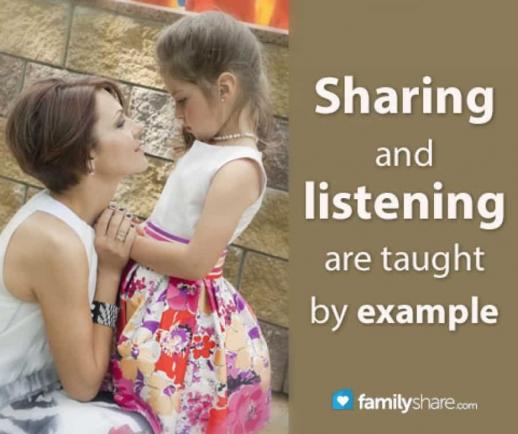
Teaching children how to solve their own conflicts has many benefits. For instance, when children are given skills to help them solve their own issues, the rate of them seeking out Mom as all-knowing and all-seeing judge decreases significantly. These skills include learning how to share their feelings with each other, listening, and recognizing when they are in the wrong.
As an example, my children - whom I will refer to as Child A and Child B - recently had a dispute when they both wished to play the piano at the same time. At first they came to me to resolve their conflict, and I wasn't in a position where I felt I could fairly judge the situation. We have been practicing problem-solving skills in our home, so I encouraged them to go through the steps and work out their problem.
These steps are as follows:
1. Encourage children to share their feelings and point of view with one another
Children can identify with feelings and emotions such as anger, sadness, disappointment, frustration, happiness, etc., and with some practice they can learn to express their feelings about the situation. It's important for children to feel that others validate their voice and feelings, including adults. For example, Child A may say something like, "I felt really upset when you played the piano at the same time as me, because it interrupted my song."� Or, "I feel disrespectedwhen someone cuts off my piano-playing time."�
2. Encourage children to listen to one another as they both share their point of view and feelings.
The point is to really try to understand where the other person is coming from. Child B may say something like, "I feel hurt that you have more piano playing time than me,"� or "I feel unimportant because it seems like when you want to play the piano is more important than when I want to play the piano."� Child A may be biting his or her tongue to keep from interrupting, and that's a good thing.
3. Next comes soul searching and acknowledgment of wrong
The children are encouraged to look inside to see what they could have done better to prevent or resolve the issue. The idea is to help them see how their actions affect others and then apologize as needed. This step has a wonderful softening-of-heart impact on both parties.
4. Now that the feelings for each other are cooled, they can then work together to find a solution.
My children laid out a schedule for who gets to play the piano when and also what to do in the future should the same issue arise. Children are very capable of finding their own solutions to problems if given the opportunity.
5. As parents, one of our greatest teaching methods is by example
All of this learning would be rather pointless if the adults in their lives didn't model it. Don't use attacking words to your spouse or child when you're upset like, "Where in the world have you been?"� Instead go to the feelings. What are you really feeling inside? "I get really worried when you are late from work or school because I don't know where you are, and I love you and care about your safety."�
Practicing problem-solving skills may take time, but is well worth it because the whole family benefits from healthy ways to deal with conflict. As an added bonus, teaching children ways to resolve their own conflicts will prepare them for future relationships as spouses, co-workers, and parents.

